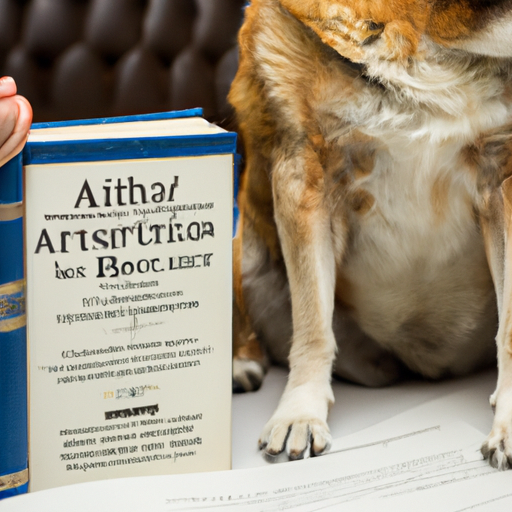As a caregiver, you’re always looking for ways to make your beloved pet’s life happier and healthier. If your dog suffers from arthritis, there are several measures you can take to alleviate their pain and improve their quality of life.
Understanding Canine Arthritis
Arthritis in dogs, similar to humans, involves the inflammation and degradation of joints causing pain and stiffness. It’s especially common in older dogs, but can also affect younger ones due to injury or genetic predisposition.
Causes and Symptoms
Arthritis can be due to various factors such as:
- Age: Older dogs are more susceptible to arthritis due to the natural wear and tear of their joints over time.
- Weight: Overweight dogs have extra pressure on their joints, leading to arthritis.
- Injury: Trauma to a joint can cause arthritis later in life.
- Genetics: Some breeds are genetically predisposed to developing arthritis.
Common symptoms include:
- Difficulty in moving around
- Limping
- Swelling in the joints
- Visible pain when walking
- Reluctance to jump or climb stairs
Treating Canine Arthritis
While arthritis can’t be cured, there are various ways to manage its symptoms and improve your dog’s quality of life.
Veterinary Care
Your vet is the first point of contact when it comes to medical treatment. They may prescribe medications such as NSAIDs or corticosteroids to reduce inflammation and pain. Regular check-ups are essential to monitor the progress of the condition and adjust the treatment plan as needed.
Weight Management
Keeping your dog’s weight in check is imperative. Extra weight puts additional strain on the joints, aggravating arthritis. Here are some tips:
- Balanced diet: Feed your dog a healthy, balanced diet. Avoid overfeeding and limit treats.
- Regular exercise: Regular exercise helps maintain a healthy weight. However, it should be gentle to not strain the joints. Examples include walking and swimming.
Physical Therapy
Physical therapy can significantly improve your dog’s mobility and strength. It includes techniques such as:
- Massages
- Hydrotherapy
- Heat or cold therapy
- Passive range of motion exercises
Natural Supplements
Natural supplements can complement medical treatment and physical therapy. Some beneficial ones include:
- Glucosamine and Chondroitin: These compounds help rebuild cartilage and reduce joint inflammation.
- Omega-3 fatty acids: They have anti-inflammatory properties and promote joint health.
- Green-lipped mussel: This is a natural source of glucosamine and chondroitin.
Home Modifications
Making your home more arthritis-friendly can help your dog move around more comfortably.
- Use ramps for stairs or furniture that your dog frequently climbs.
- Provide a comfortable bed that supports your dog’s joints.
- Use non-slip mats to prevent your dog from slipping on hard floors.
FAQs
1. Can diet affect my dog’s arthritis?
Yes, a healthy diet is crucial in managing arthritis. Overweight dogs are more prone to arthritis, so maintaining a healthy weight can alleviate symptoms. Certain foods rich in Omega-3 fatty acids, such as fish oil, can also help reduce inflammation.
2. Are there any exercises I should avoid?
Avoid high-impact activities like jumping or running, which can strain your dog’s joints. Instead, opt for low-impact activities like walking or swimming.
3. Can younger dogs get arthritis?
Yes, while arthritis is more common in older dogs, younger dogs can get it too due to factors like injury, obesity, or genetic predisposition.
4. Do certain breeds have a higher risk of arthritis?
Yes, larger breeds like Labradors, Golden Retrievers, and German Shepherds have a higher risk of developing arthritis. However, any breed can develop arthritis.
Remember, as a caregiver, your role is crucial in managing your dog’s arthritis. With your love and care, along with professional medical advice, you can help your furry friend lead a pain-free and happy life.



